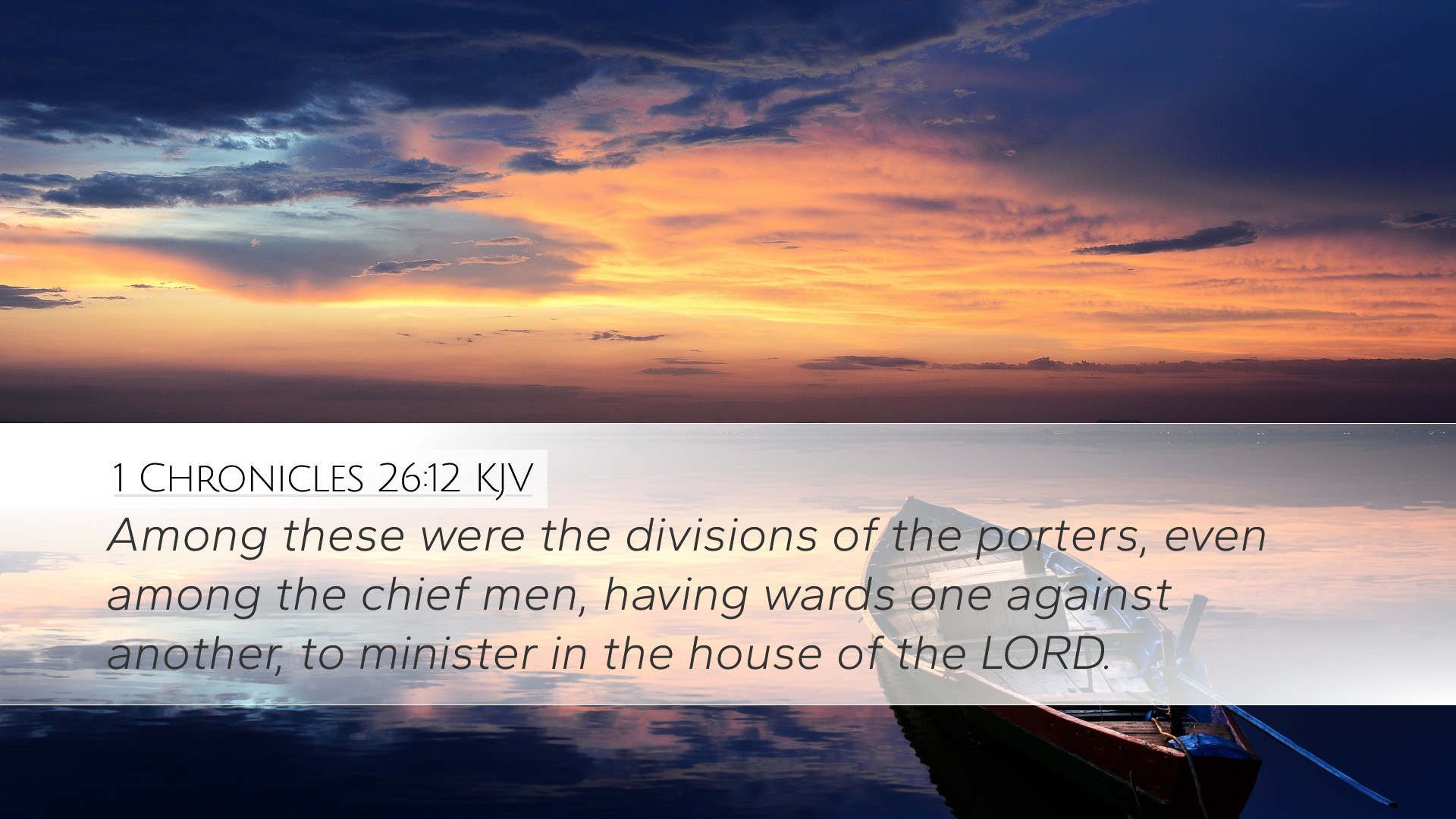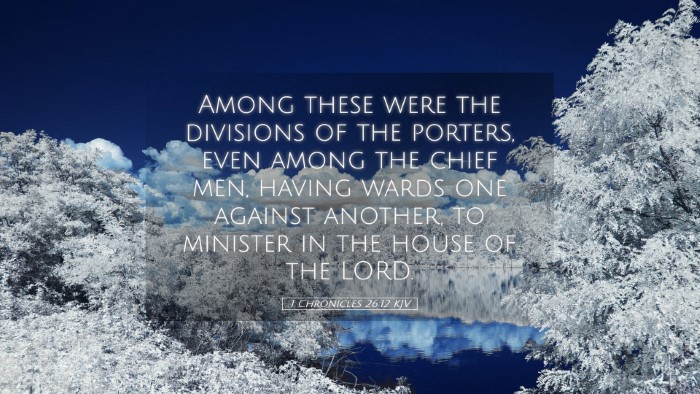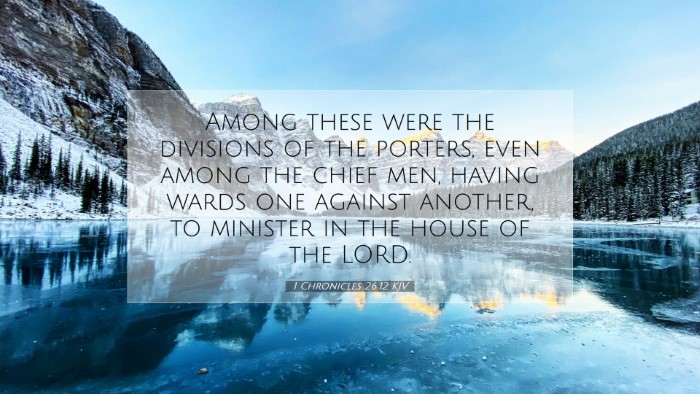Commentary on 1 Chronicles 26:12
Verse Reference: 1 Chronicles 26:12 - "Among these were the divisions of the porters, even among the chief men, having the charges over the servants of the house of the Lord."
Contextual Overview
In the book of 1 Chronicles, the narrative focuses on the organization and duties established during King David's reign. Particularly, 1 Chronicles 26 emphasizes the role of various Levite families in maintaining the temple and its services. This chapter highlights both the administrative structure and the importance of each role in the worship life of Israel.
Significance of the Porters
The porters, or gatekeepers, served a crucial function in the religious life of Israel. Their responsibilities included guarding the entrances to the temple, a duty that underscored their role in preserving the sanctity of the worship environment. The division among chief porters indicated a clear hierarchy and structure, ensuring that every aspect of temple service was conducted with order and reverence.
Insights from Public Domain Commentaries
Matthew Henry's Commentary
According to Matthew Henry, this verse encapsulates the orderly and systematic approach to temple worship that David instituted. Henry notes that the porters represented a faithful and dedicated group, establishing a precedent for future generations on the importance of guarding sacred spaces. He stresses that the porters not only provided physical security but also played a spiritual role by controlling who entered into the presence of God.
Albert Barnes' Notes on the Whole Bible
Albert Barnes highlights the organization of the porters as indicative of the broader theme of structure within the worship community. He observes that this was a necessary measure for promoting reverence and preventing unauthorized access to the Holy Place. Barnes remarks that the appointments of these porters mirrored divine order and illustrated God's desire for holiness among His people. The differentiation among chief men reinforces the necessity of leadership within the church or any community of faith.
Adam Clarke's Commentary
Adam Clarke provides additional detail on the roles of the porters, noting that their function went beyond mere physical guarding. They were to ensure the purity of worship practices and to alert the people to any matters concerning the temple service. Clarke argues that these roles are vital not only in the Old Testament context but also in contemporary church practices. He emphasizes the teaching role of the porters, who were to instruct worshippers about the significance of approaching God with the right attitude and preparation.
Theological Implications
The division of duties among the porters can be viewed as a reflection of God's character. Just as God is a God of order and holiness, the establishment of these roles promotes a spiritual discipline that is necessary for engaging with the Lord. This structure within the temple serves as a model for the Church today, encouraging pastors and leaders to cultivate a similarly reverent atmosphere in their respective congregations.
Application for Today
Both church leaders and congregants can glean significant lessons from this verse. The role of the porters is representative of the contemporary believer's responsibility in safeguarding the purity of worship and the sanctity of church life. Pastors should inspire their communities to embrace structured involvement in worship, education, and service, promoting a culture of dignity and respect towards God and one another.
- Guarding Worship: Like the porters, today’s believers should guard against distractions and disruptions that detract from the worship experience.
- Restoration and Welcoming: The act of gatekeeping also implies welcoming others into the community of faith, thereby emphasizing hospitality as a key Christian virtue.
- Leadership and Responsibility: Church leadership must ensure that responsibilities are clearly defined and that every member understands their role, much like the porters in the temple.
Conclusion
The provision of spiritual leadership through the porters as noted in 1 Chronicles 26:12 embodies more than just administrative function; it reflects the broader theological framework of how God's people are to approach His holiness. The insights from commentaries from Henry, Barnes, and Clarke encourage both historical understanding and present-day application, reminding us that God's order in worship is vital for an authentic relationship with Him.


